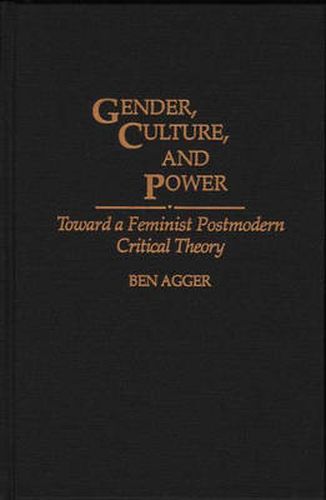Readings Newsletter
Become a Readings Member to make your shopping experience even easier.
Sign in or sign up for free!
You’re not far away from qualifying for FREE standard shipping within Australia
You’ve qualified for FREE standard shipping within Australia
The cart is loading…






Agger develops a critical theory which confronts the challenges of feminism and postmodernism in order to address postmodernity adequately. Drawing on first-generation critical theory of Horkheimer, Adorno, and Marcuse and second-generation critical theory of Habermas, Agger argues for the priority of critical theory over the antitotality perspectives of postmodernism and feminism. Although Frankfurt critical theory, postmodernism, and feminism are often viewed as divergent, Agger develops an argument for synthesis, outlining what he calls the logic of feminist postmodern critical theory. He then applies the logic to particular social, political, textual, and cultural problems. Building especially on the feminist critique of the domination of women’s reproductive activities by a male standard of value, this new theoretical logic connects social problems heretofore seen as separable, especially those which derive from the intellectual agenda of multiculturalism.
$9.00 standard shipping within Australia
FREE standard shipping within Australia for orders over $100.00
Express & International shipping calculated at checkout
Agger develops a critical theory which confronts the challenges of feminism and postmodernism in order to address postmodernity adequately. Drawing on first-generation critical theory of Horkheimer, Adorno, and Marcuse and second-generation critical theory of Habermas, Agger argues for the priority of critical theory over the antitotality perspectives of postmodernism and feminism. Although Frankfurt critical theory, postmodernism, and feminism are often viewed as divergent, Agger develops an argument for synthesis, outlining what he calls the logic of feminist postmodern critical theory. He then applies the logic to particular social, political, textual, and cultural problems. Building especially on the feminist critique of the domination of women’s reproductive activities by a male standard of value, this new theoretical logic connects social problems heretofore seen as separable, especially those which derive from the intellectual agenda of multiculturalism.